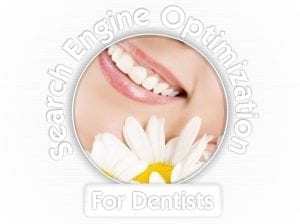 Implementing a content management system or CMS on your dental website can be an enormous benefit to day-to-day operations. However, it’s vital that the convenience of a CMS doesn’t override your SEO efforts. Without proper dental SEO, no one will be able to find your site, which doesn’t work when you’re trying to get the word out about your business.
Implementing a content management system or CMS on your dental website can be an enormous benefit to day-to-day operations. However, it’s vital that the convenience of a CMS doesn’t override your SEO efforts. Without proper dental SEO, no one will be able to find your site, which doesn’t work when you’re trying to get the word out about your business.
Importance of Dental SEO in CMS
CMS can improve the functionality of your website. Not to mention, it’s much easier to manage than a static HTML-based website. All the dynamic features of a CMS give you the ability to change the site on a whim without having to rebuild the entire structure. However, some systems negate their ease of use by failing to include proper SEO functionality. But how can you tell one CMS system from the next? And how can you ensure it’ll incorporate all of the dental SEO attributes you need it to?
Features to Look For
- A good CMS set up will include proper SEO functions. Here’s how to tell your system of choice is the right one:
- Link management: Permalink support for increasing SEO. Moving pages around won’t require manual changes. Simple move the page and all links will be updated automatically.
- Meta tag support: There should be ample support for SEO components within the CMS. For instance, you should be able to add title tags, header tags, alt tags, and link rel tags.
- SEO-friendly themes
- Custom internal and external anchor links.
- Customizable 404 pages.
- Flexibility in underlying structure: You should be able to customize HTML tags to reorganize the entire page.
- Web 2.0 and social media support: A part of the dynamic aspects of CMS is its ability to be updated on the fly and to foster community interaction. Dental SEO needs to incorporate these items including blog posts, tagging, forums, and buttons for sites like Twitter and Facebook.
- Ample community support: You should be able to interact with people that use the CMS system, ask them questions, and join in on discussions regarding SEO implementation. The best CMS are interactive and allow you to find the answers to your most pressing questions.
Before you install a CMS, make sure it supports dental SEO. Otherwise, you may end up with a very usable, yet entirely hidden website that doesn’t do anything to help promote or benefit your dental practice.
